Politics
Bangladesh quake kills nine, injures hundreds


- Govt taking “all necessary measures”, says Muhammad Yunus.
- Quake leaves 14 buildings damaged, fire broke out at power station.
- Tremors also felt in Kolkata, over 325 km away from the epicentre.
DHAKA: A powerful earthquake struck outside Bangladesh’s crowded capital Dhaka on Friday, killing at least nine people and injuring more than 300, authorities said.
The 5.5-magnitude quake struck at 10:38 am (0438 GMT) near the city of Narsingdi, about 33 kilometres (16 miles) from Dhaka, according to the US Geological Survey.
The tremor sparked fear and chaos, with many in the Muslim-majority nation of 170 million people at home on their day off.
AFP reporters in Dhaka saw people weeping in the streets while others looked shocked.
The interim government’s press office said at least nine people were killed and more than 300 people were injured.
At least 14 buildings were damaged, and fire broke out at a power station but was later brought under control.

Interim leader Muhammad Yunus expressed in a statement his “deep shock and sorrow over the news of casualties in various districts”.
He added that the government was taking “all necessary measures”.
Nine people were taken to hospitals in Dhaka with serious injuries, according to the government’s health department.
A witness told AFP that masonry from an eight-storey building in Dhaka had fallen onto a busy road below.
“Many people had gathered at the butcher’s” when the rubble fell, said Sakib Hossain, 50, who rushed out after hearing a loud bang.
“I saw vans carrying injured people,” he added.
Mohammad Sharif, who was in a queue to buy meat, said the debris fell from above on people standing ahead of him.
“A child suffered a serious injury to his neck and died immediately,” he told AFP.
The shaking lasted for 26 seconds, according to the Bangladesh Meteorological Department, which recorded the magnitude as 5.7.
“The situation is being closely monitored, and all relevant departments have been directed to immediately go to the field to assess any possible damages,” Yunus said.
The 85-year-old Nobel Peace Prize winner was selected to lead the country after a mass uprising toppled the government last year. Elections are slated for February 2026.
The tremors on Friday were felt as far as the Indian city of Kolkata, more than 325 kilometres (about 200 miles) away from the epicentre.
AFP reporters there saw people fleeing offices and homes after the sudden jolt.
“I felt tremors and my bed moved […] I rushed out of my room,” said Sumit Dutta, 66.
There were no immediate reports of casualties or significant damage in India.
Politics
Internet users flag India’s fighter jet ‘oil leak’ after Tejas fatal crash at Dubai Airshow

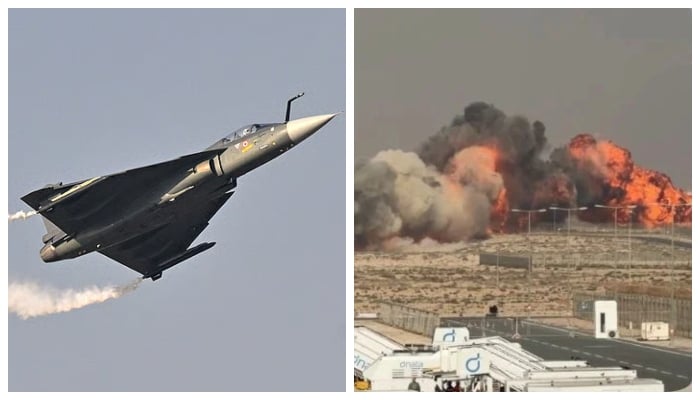
Indian fighter jet Tejas crashed during a flying display at the Dubai Airshow on Friday, killing the pilot, and people on the internet were quick to point out the reason — though no official clarification has been provided yet.
Talks of technical issues with the Indian fighter jet had been circulating for days after a video reportedly showed an “oil leak”.
However, Indian officials refuted the reports about an oil leak, saying that the “fluid observed was part of a routine draining process, not a technical malfunction”.
In a post on X, India’s Press Information Bureau (PIB) stated that the fluid observed coming from the Tejas was part of a standard pre-flight procedure to remove condensation.
The PIB termed the video a “false narrative”, being pushed to “undermine the fighter’s proven technical reliability”.
However, netizens were quick to highlight the video after the deadly crash, noting that the Indian Air Force flew the fighter jet despite the technical issues.
Meanwhile, defence expert Air Marshal (retd) Asim Saleem said that such crashes were not unusual during “risky air aerobatics”.
“Since you are free-styling with the plane and are extremely close to the ground, therefore, the margin of error is zero,” he said while speaking to Geo News.
According to Air Marshal Saleem, such crashes typically result from either pilot error or technical problems with the aircraft.
He, however, pointed out the oil leak video, saying that there were “more chances of a technical problem in this instance”.
“Their air chief also made a statement that the Hindustan Aeronautics Limited’s products are substandard and they aren’t satisfactory as per the Indian Air Force’s standards,” he said.
He also added that the pressure of participating in such shows, where both the fighter jet and the pilot are in the spotlight, increases the likelihood of a mistake.
Politics
Afghanistan seeks new trade routes as Pakistan ties sour
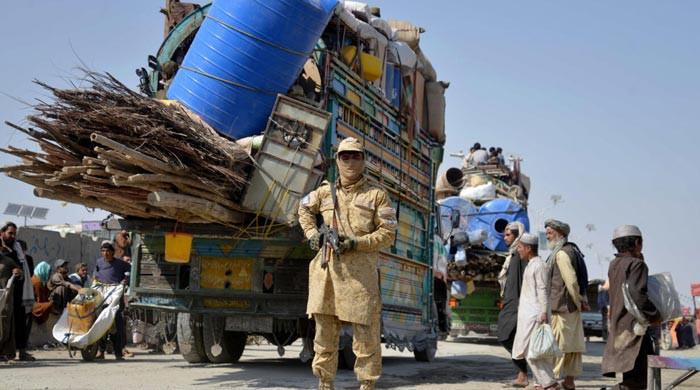
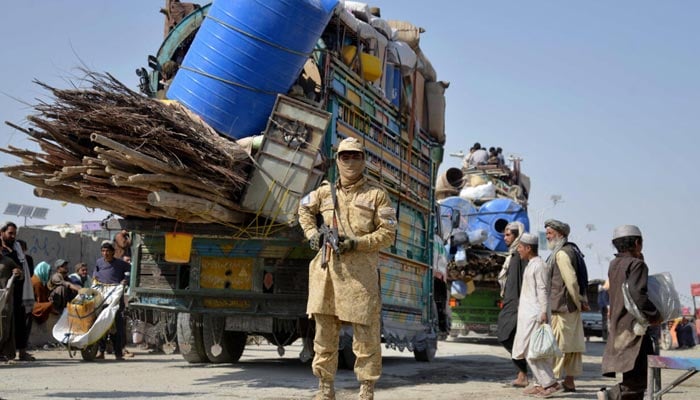
- Trade with Iran and Turkmenistan jumped significantly.
- Russia received Afghan apples and pomegranates.
- Afghan exports face delays without cold storage.
Afghanistan is scrambling to diversify its trade partners after a deadly border clash with Pakistan last month brought ties to their lowest point in years.
The South Asian neighbours have been locked in an increasingly bitter dispute since the Taliban took over Kabul in 2021, with Islamabad saying that Afghanistan harbours the militants behind cross-border attacks.
Abdul Ghani Baradar, Afghanistan’s deputy prime minister for economic affairs, urged traders last week to “redirect their trade toward other alternative routes instead of Pakistan”.
Pakistan is landlocked Afghanistan’s top trading partner, supplying rice, pharmaceuticals and raw materials, while taking in 45% of Afghan exports in 2024, according to the World Bank.
More than 70% of those exports, worth $1.4 billion, are perishable farm goods such as figs, pistachios, grapes and pomegranates.
Dozens of Afghan trucks were stranded with rotting produce when the frontier shut on October 12 due to deadly cross-border fire, which was followed by a fragile truce.
Losses have topped $100 million on both sides, and up to 25,000 border workers have been affected, according to the Pakistan-Afghanistan Joint Chamber of Commerce and Industry (PAJCCI), which seeks to promote bilateral trade.
Baradar warned traders that Kabul would not intervene if they kept relying on Pakistan.
Wary of further disruptions, the Taliban government is now hedging its bets with Iran, Central Asia — and beyond.
Pomegranates to Russia
Trade with Iran and Turkmenistan has jumped 60-70% since mid-October, said Mohammad Yousuf Amin, head of the Chamber of Commerce in Herat, in western Afghanistan.
Kabul also sent apples and pomegranates to Russia for the first time last month.
Russia is the only country to have officially recognised the Taliban administration.
Taliban leaders crave wider recognition and foreign investment, but sanctions on senior figures have made investors wary.
The vast market in India is a prime attraction. On Sunday, state-owned Ariana Afghan Airlines cut freight rates to the country of 1.4 billion people.
Two days later, Kabul sent its commerce and industry minister to New Delhi.
“Afghanistan has too many fruits and vegetables it cannot store because there are no refrigerated warehouses,” said Torek Farhadi, an economic analyst and former IMF adviser.
“Exporting is the only way,” he told AFP. And quickly, before the products spoil.
Kabul touts Iran’s Chabahar port as an alternative to Pakistan’s southern harbours, but Farhadi noted it is farther, costlier and hampered by US sanctions on Tehran.
‘Distraught’
“It’s better for both countries to end this trade war… They need each other,” Farhadi said as Pakistan maintains that the border closure has been done to curb militant infiltration.
The spokesman for Pakistan’s foreign ministry said on Friday that Islamabad had reached its “threshold of patience” after recent attacks.
“Either we get ourselves killed or we undertake very risky trade… This is a difficult choice that we have made,” spokesman Tahir Hussain Andrabi told a weekly briefing.
“Can you put a price tag on a human life, on a Pakistani life?” he said.
In Peshawar, near the frontier, Afghan produce has all but vanished from markets.
Grapes cost four times more, and tomatoes have more than doubled to over 200 rupees (70 cents) a kilogram, an AFP correspondent found.
On Monday, the PAJCCI urged Islamabad to act, warning of mounting costs as shipping containers bound for Afghanistan and Central Asia remain stuck in Pakistan.
Each container is racking up $150-$200 in daily port charges, the group said, adding: “With thousands of containers stuck, the collective economic burden has become unbearable and continues to grow with each passing day.”
Truck driver Naeem Shah, 48, has been waiting at the Pakistani border town of Chaman with sugar and cooking oil bound for Afghanistan.
“I haven’t been paid for a month. No matter who I call, they say there is no money because the border is closed,” he told AFP.
“If it doesn’t reopen, we will be distraught.”
Politics
Ex-UK PM Johnson oversaw ‘chaotic’ response to COVID which led to more deaths, finds inquiry
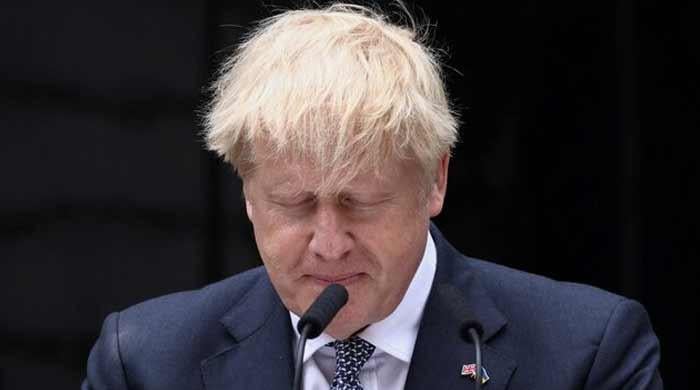
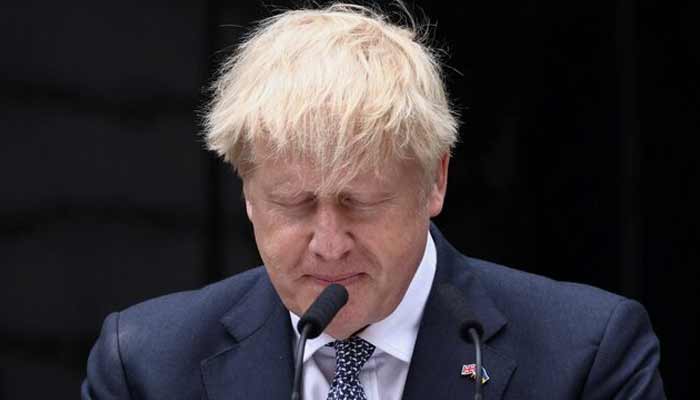
Former British Prime Minister Boris Johnson oversaw a toxic, chaotic and dithering response to the COVID pandemic, with a delay to locking the country down resulting in about 23,000 more deaths, a report by a public inquiry concluded on Thursday.
Britain recorded more than 230,000 deaths from COVID, a similar death rate to the United States and Italy but higher than elsewhere in western Europe, and it is still recovering from the economic consequences.
An inquiry, which Johnson ordered in May 2021, delivered a blistering assessment of his government’s response to COVID, criticising his indecisive leadership, lambasting his Downing Street office for breaking its own rules and castigating his top adviser, Dominic Cummings.
‘Toxic and chaotic culture’ in government
“There was a toxic and chaotic culture at the centre of the UK government during the pandemic,” the inquiry chair, former judge Heather Hallett, said in her report.
Hallett said if earlier action had been taken to prevent the spread of the virus, lockdown might have been avoided altogether. But she said the failure to act made it unavoidable.
She said Johnson had failed to appreciate the seriousness of the virus after it emerged at the start of 2020, believing it would amount to nothing and was distracted by other government business, with Britain at the time bogged down in talks over its departure from the European Union.
Inquiry chair added that he had “reinforced a culture in which the loudest voices prevailed and the views of other colleagues, particularly women, often went ignored, to the detriment of good decision-making.”
When he appeared before the committee in 2023, Johnson said his government had been too complacent and had “vastly underestimated” the risks. He apologised and said he understood the public’s anger.
Johnson did not offer any immediate comment.
A campaign group for bereaved families said “it is devastating to think of the lives that could have been saved under a different Prime Minister”.
Hallett said by the time Johnson announced a lockdown on March 23 it was “too little, too late”, a repeated criticism she levelled at the British government and the devolved administrations of Scotland, Wales and Northern Ireland.
Had Britain locked down just a week earlier on March 16, as the consensus of evidence said it should, the number of deaths in the first wave up to July would have been reduced by about 23,000 or 48%, the report concluded.
A failure to act sooner again as cases rose later in the year also led to further national lockdowns, it added.
Hallett said the inquiry recognised Johnson had to wrestle with profound decisions, but said he repeatedly changed his mind and failed to make timely decisions.
‘Partygate scandals’
Johnson was forced from office in July 2022, with revelations of parties at Downing Street during COVID lockdowns among the many scandals that ended his premiership.
Both he and Rishi Sunak, the finance minister during the pandemic who later became prime minister, were fined for breaking lockdown rules.
Then health minister Matt Hancock also quit after photos emerged of him kissing and embracing an aide in his office in breach of restrictions. His “truthfulness and reliability” in meetings had also been a cause for concern, the inquiry found.
Some of the harshest language was directed at Cummings, who quit his job in November 2020.
While acknowledging his “commendable” role in helping change policy at the start of the pandemic, he was “a destabilising influence” who “used offensive, sexualised and misogynistic language” and strayed far from his proper role as an adviser.
Cummings told the inquiry that the Cabinet Office, which supports the running of government, had failed during the pandemic. Neither he nor Hancock made any comment on its findings.
Thursday’s report, which included 19 recommendations to improve the country’s response in a future pandemic, is the second tranche of findings by the inquiry. Its first module gave a damning assessment of Britain’s readiness, saying had preparation been better, the financial and human cost might have been less.
-

 Tech6 days ago
Tech6 days agoNew carbon capture method uses water and pressure to remove CO₂ from emissions at half current costs
-

 Politics1 week ago
Politics1 week agoBritish-Pakistani honoured for transforming UK halal meat industry
-

 Business6 days ago
Business6 days agoThese 9 Common Money Mistakes Are Eating Your Income
-

 Sports6 days ago
Sports6 days agoTexas A&M officer scolds South Carolina wide receiver after touchdown; department speaks out
-
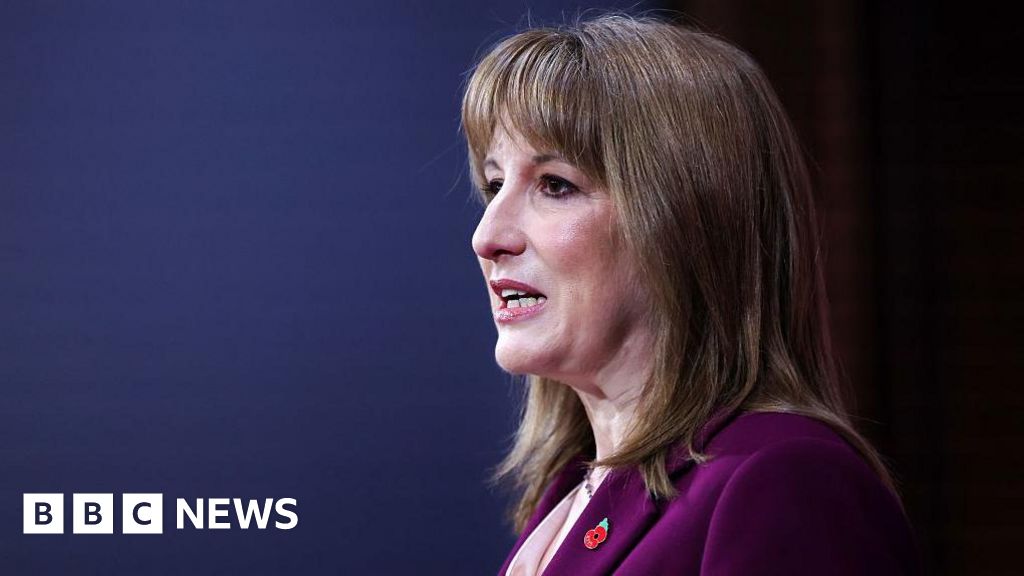
 Business7 days ago
Business7 days agoWhat’s behind Rachel Reeves’s hokey cokey on income tax rises?
-

 Sports1 week ago
Sports1 week agoApple scrapping MLS Season Pass service in ’26
-

 Tech1 week ago
Tech1 week ago$25 Off Exclusive Blue Apron Coupon for November 2025
-

 Fashion1 week ago
Fashion1 week agoAdidas & Patrick Mahomes expand NIL programme with Texas Tech athletes






